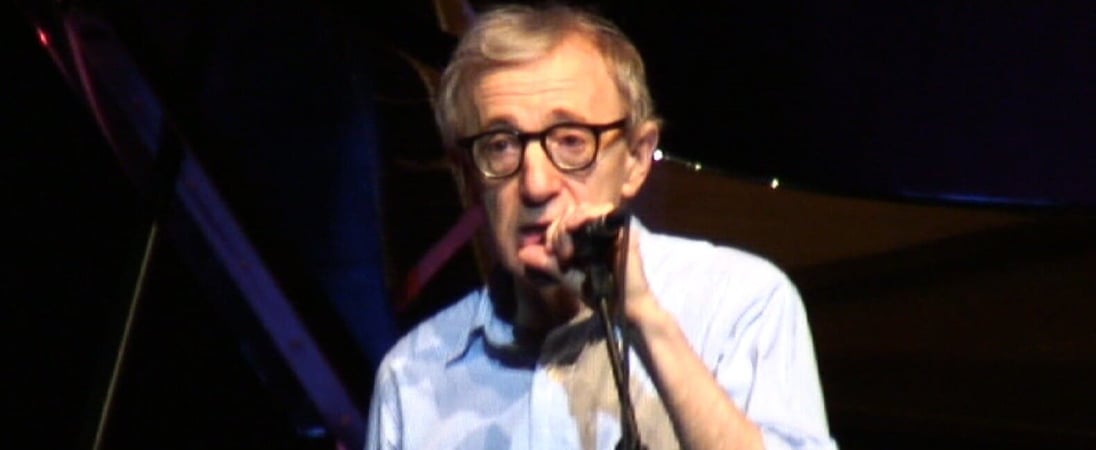
Woody Allen's birthday
Woody Allen’s Early Years
Born as Allan Stewart Konigsberg on November 30, 1935, in New York City, Woody Allen changed his legal name to Heywood Allen at the age of seventeen before becoming a comedian, actor and director. Woody started writing jokes when he was fifteen and began to sell them to Broadway writers when he was sixteen. By the time Allen graduated high school in 1953, he was already earning more from his writing than both his parents’ salaries combined.
Woody originally attended New York University to study communication and film, but dropped out after failing one of the classes. He later studied film at City College of New York in 1954, but left early on, preferring to teach himself about filmmaking rather than learn it at school.
Woody Allen’s Career
In 1955, Allen joined the NBC Writer’s Development Program and found work in The NBC Comedy Hour in Los Angeles. During this time, he wrote for The Ed Sullivan Show, The Tonight Show, Caesar’s Hour, and other television shows such as the Candid Camera, Stanley and The Pat Boone Chevy Showroom. His collaboration in several leading comedy shows of the ‘50s and 60’s helped him earn a reputation as a “genius.”
Allen wrote cartoon captions and short stories for magazines, as well as worked as a stand-up comedian. He performed from 1960 to 1969 in several clubs around Manhattan and quickly stood out for his monologue style and topics, which were unlike those of other fellow comedians of his generation. Woody was soon performing on television as well as nightclubs, and his contributions to the profession were considered innovative and influential at the time.
Woody Allen, Filmmaker
By the beginning of the 1970s, Allen’s writing skills had expanded to include playwrights and screenplays. He had previously written for the movie What’s New Pussycat? in 1965, and had done Don’t Drink the Water (1966) and Play It Again, Sam (1969) for theater. Allen made his directorial debut in 1966 with What’s up, Tiger Lily?. After that, he decided he would write the screenplay for all the movies he directed, giving them his signature comedic style.
Some of his most successful works of this decade were Bananas (1971), Sleeper (1973), Love and Death (1975), Annie Hall (1997), Interiors (1978), and Manhattan (1979). Aside from filmmaking, Allen released his first two books, Getting Even and Without Feathers, in 1971 and 1975 respectively. For his work in Annie Hall and Manhattan, Allen was nominated for Academy, BAFTA and Golden Globe Awards for Best Screenplay and Best Director.
Starting in 1980, Allen premiered at least one movie per year over the course of a sixty-year long career. Some of his most recognizable works, imbued with his trademark comedic, neurotic style and sometimes heavily influenced by European film styles, are: Stardust Memories (1980), Zelig (1983), The Purple Rose of Cairo (1985), Hannah and Her Sisters (1986), Another Woman (1988), Crimes and Misdemeanors (1989), Manhattan Murder Mystery (1993), Bullets Over Broadway (1994), Deconstructing Harry (1997), Small Time Crooks (2000), and Melinda and Melinda (2004).
Allen’s movies of the past two decades have featured a celebrity ensemble cast, and several were set in European cities. These movies include Match Point (2005), Vicky Cristina Barcelona (2008), You Will Meet A Tall, Dark Stranger (2010), Midnight in Paris (2011), and To Rome with Love (2012). Subsequent films were Blue Jasmine (2013), Magic in the Moonlight (2014), Cafe Society (2016), Wonder Wheel (2017), A Rainy Day in New York (2018), Rifkin’s Festival (2020) and Coup de Chance (2023).
Woody Allen’s Awards
For his work in the film industry, Allen has received numerous accolades and honors, including four Academy Awards, one for Best Director and the others for Best Original Screenplay, plus nine British Academy Film Awards and two Golden Globes. He has also been nominated for a Grammy Award for Best Comedy Album and Best Spoken Word Album for his recorded stand-up acts, amongst many other awards.
Also on this date...
National Computer Security Day
From using strong passwords to avoiding phishing scams, take measures to secure your devices and personal information.
National Mason Jar Day
Capture the summer with these versatile glass jars that can store anything from pickles to cocktails, adding rustic charm to any occasion.
National Mousse Day
With its light, fluffy texture and delectable taste, mousse is the dessert of champions — perfect for any occasion!




